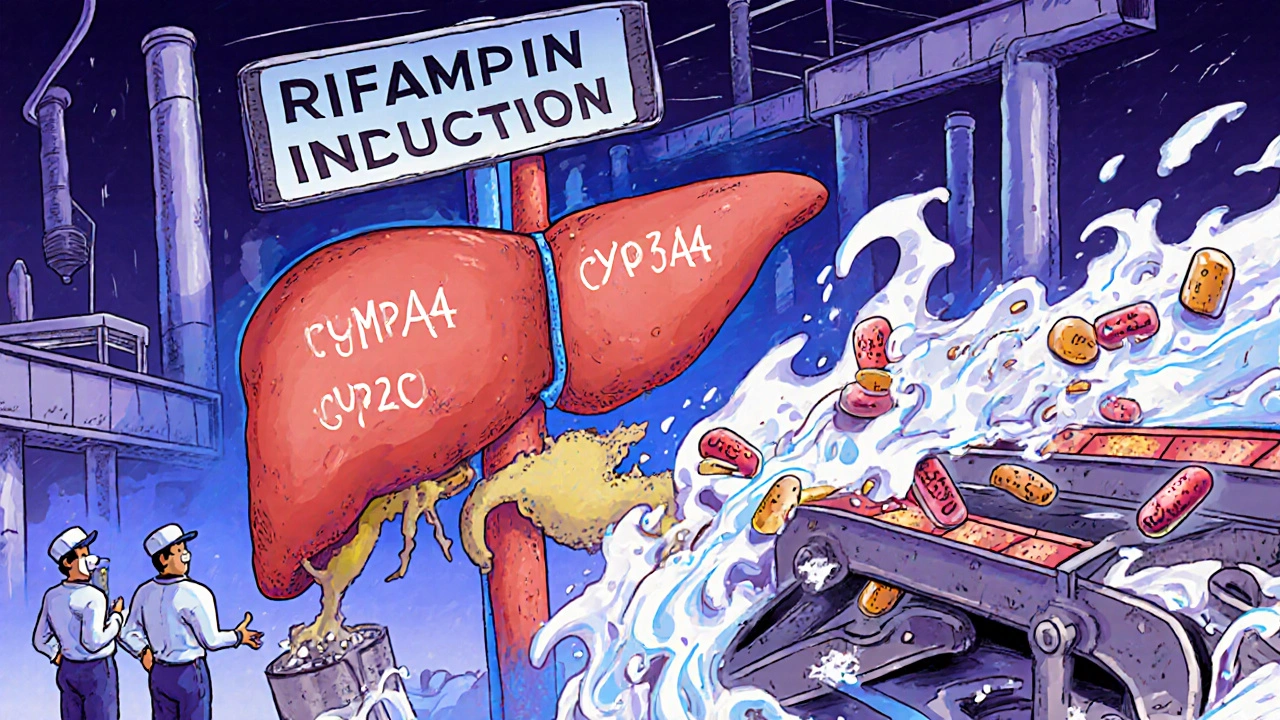Rifampin Drug Interaction: What You Need to Know About Side Effects and Risks
When you take rifampin, a powerful antibiotic used to treat tuberculosis and prevent meningitis. Also known as Rifadin, it’s one of the most common drugs that messes with how your body processes other medications. That’s because rifampin speeds up your liver’s ability to break down drugs—sometimes too fast. This isn’t just a minor side effect. It can make birth control pills useless, reduce the power of HIV meds, or even cause blood thinners to stop working. If you’re on rifampin, you’re not just taking one drug—you’re changing how your whole body handles everything else.
This effect is called liver enzyme induction, when a drug triggers your liver to produce more enzymes that break down other substances. It’s why rifampin doesn’t just interact with a few drugs—it affects dozens. Common ones include warfarin, oral contraceptives, statins, antidepressants like SSRIs, and even some painkillers. For example, if you’re on warfarin and start rifampin, your INR levels can drop fast, raising your risk of a clot. Or if you’re taking birth control, you might get pregnant even if you’ve never missed a pill. Even over-the-counter stuff like St. John’s wort or certain antifungals can become risky when mixed with rifampin. Doctors don’t always warn you about this unless you ask. And if you’re managing multiple conditions—like TB plus high cholesterol or depression—you might not realize the danger until something goes wrong.
The signs aren’t always obvious. You might feel fine, but your blood tests tell a different story. That’s why it’s not enough to just read the label. You need to know what’s in your medicine cabinet and tell your pharmacist every single thing you take—including vitamins, herbal supplements, and even occasional pain relievers. If you’ve been on rifampin for a while and notice new symptoms—like unusual bruising, mood changes, or breakthrough bleeding—it’s not just coincidence. It could be a hidden drug interaction. And if you’re switching from one antibiotic to another, or starting a new treatment, don’t assume your old meds still work the same way. Rifampin’s effects can last weeks after you stop taking it.
The posts below cover real-world cases and comparisons of drugs that clash with rifampin, from antibiotics to antidepressants, cholesterol meds to birth control. You’ll find clear breakdowns of what happens when these drugs meet, what symptoms to watch for, and how to talk to your doctor about safer alternatives. Whether you’re a patient managing multiple prescriptions or a caregiver helping someone else, this collection gives you the facts you need to avoid dangerous mix-ups—without the medical jargon.

